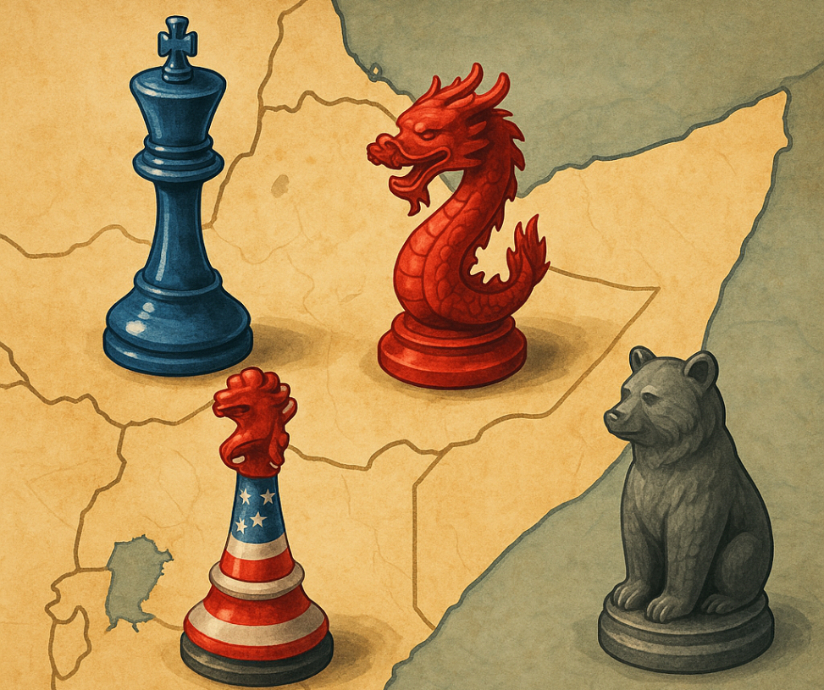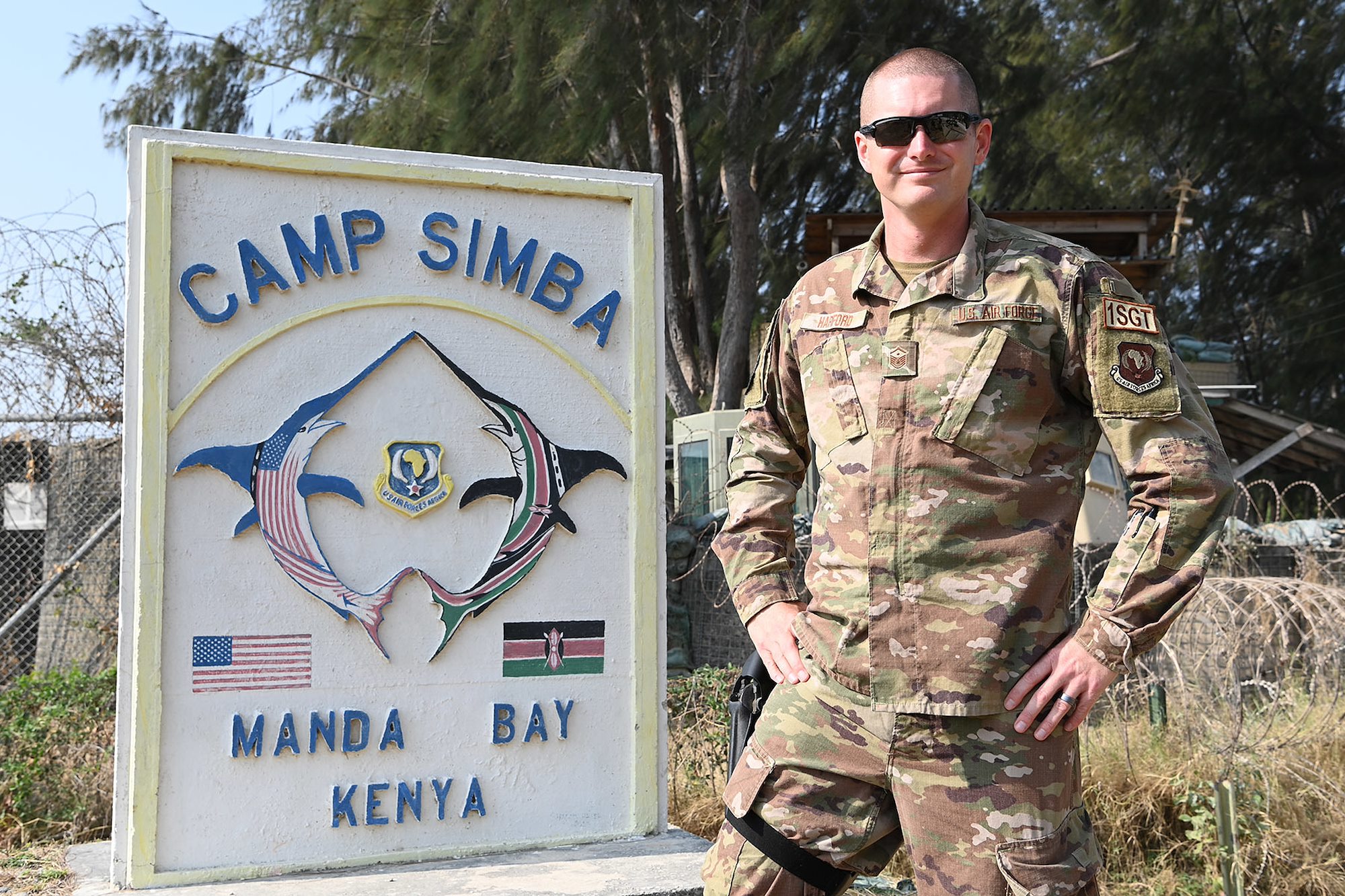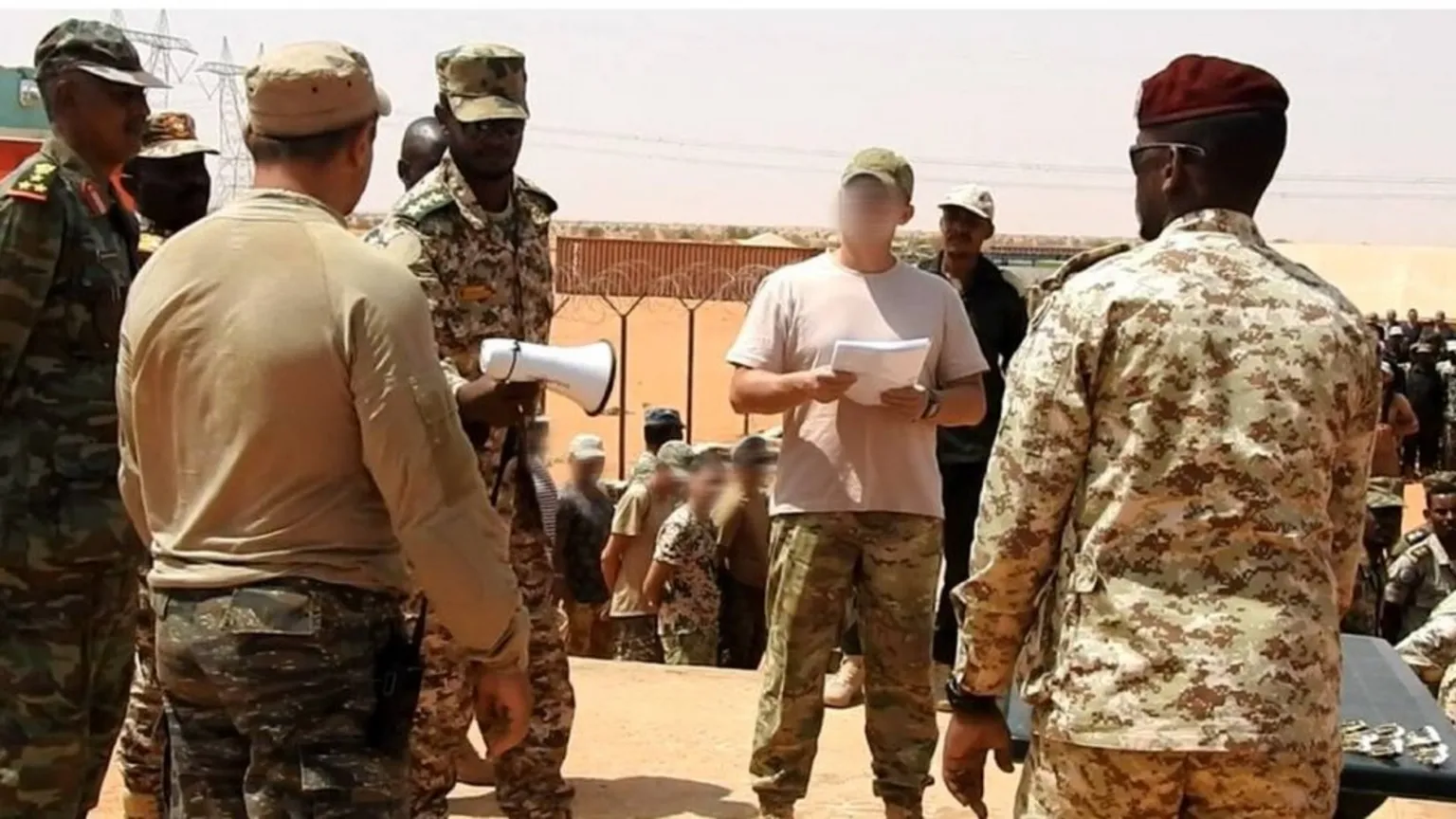
1.0 Introduction
Africa’s geopolitical relevance is once again at the forefront of international attention. As global power configurations shift, the continent is increasingly viewed as a space for military positioning, economic investment, and political influence. This renewed focus is driven by a combination of factors: a youthful population, untapped markets, and an abundance of strategic minerals. At the same time, great power interests are evolving beyond traditional statecraft toward multidimensional strategies that integrate military presence, economic leverage, cyber influence, and cultural diplomacy. These shifts reflect a broader transformation in strategic doctrines, often framed as the emergence of an “age of great power competition,” where influence is pursued through diverse military, economic, and digital tools (Colby & Mitchell, 2020).
Within this broader continental picture, Eastern Africa has emerged as a key zone of interest due to its strategic access to global maritime routes, its resource-rich interior, and its proximity to the Arabian Peninsula and Indian Ocean trade corridors. Over the past decade, this interest has intensified, with a sharp rise in foreign military installations, infrastructure projects, and diplomatic realignments. Countries such as Kenya, Ethiopia, Djibouti, and Somalia have been drawn into complex webs of military cooperation, debt-financed infrastructure, and influence campaigns. Yet while these developments promise connectivity and growth, they also risk entrenching dependency, disrupting fragile political settlements, and regionalizing global rivalries. A deeper concern is whether these engagements are empowering African states or merely reinforcing their role as passive theatres of global contest. This commentary aims to provide a forward-looking analysis of great power competition in Eastern Africa and anticipate its implications for regional governance, diplomacy, and stability. It explores four strategic domains where external influence is reshaping the region’s geopolitical landscape.

2.0 Key Issues
2.1 Intensified Militarization and Strategic Positioning
Eastern Africa’s geography continues to attract foreign military interest. The militarization of the Horn of Africa is no longer limited to traditional bases; it includes security corridors, naval logistics hubs, and remote surveillance points (Terefe & Tesfaye, 2023). Djibouti, with its unparalleled access to the Red Sea and Indian Ocean shipping lanes, hosts multiple bases including those of the United States, China, France, Japan, and the EU (Brooke-Holland, 2023). Russia seeks naval access through arrangements in Sudan, Eritrea, and Somaliland. These bases enhance global power projection but heighten the risk of local conflicts becoming arenas of proxy competition. Djibouti alone has become a dense hub for overlapping military activities, raising questions about crisis deconfliction mechanisms and national sovereignty. This, in return, has been marked by the strategic use of arms diplomacy and elite military training to secure political footholds (Stronski, 2019). The growing density of external military actors may lead to geopolitical flashpoints in the absence of coordinated governance.

2.2 Economic Leverage through Infrastructure and Digital Systems
Beyond military presence, powers such as China, the UAE, and Turkey are exerting influence through investments in ports, railways, agriculture, and digital platforms. China’s Belt and Road Initiative has reshaped regional infrastructure while also deepening financial dependencies (Krishna & Haldar, 2024). The Mombasa and Lamu ports, Addis Ababa-Djibouti rail line, and Ethiopia’s industrial parks are examples of China’s expansive approach. Gulf States have expanded economic influence through logistics, agribusiness, and telecommunications, often bypassing the traditional institutions. Turkey, meanwhile, combines construction contracts with humanitarian outreach and soft power investments in fragile states like Somalia (Misirli & Orhan, 2023). Competition now targets not only physical assets but also digital ecosystems and regulatory space, with long-term implications for sovereignty (Akum and Tull , 2023). The risk is that African governments may unwittingly sign away control over critical infrastructure or data in the pursuit of short-term capital inflows.
2.3 Fragmented Regional Responses and Strategic Vulnerability
Foreign engagement in the region remains largely bilateral, often lacking transparency or regional coordination. National governments pursue deals that offer short-term gains but may undermine collective resilience. IGAD and the African Union have struggled to assert normative frameworks that guide foreign partnerships or defend shared strategic interests. This vacuum has allowed global actors to exploit divisions between states, selectively engage elites, and shape policy landscapes in their favour. Akum and Tull (2023) caution that this fragmented approach weakens African agency and leaves countries vulnerable to overlapping spheres of influence and exploitative arrangements. In the absence of harmonized responses, the region risks becoming a mosaic of externally influenced mini-orders, each calibrated to a different foreign agenda.

2.4 Rising Risk of Conflict Internationalization
The intersection of internal political instability and external interest poses a significant threat to regional peace. In Sudan, foreign alignment with rival factions has escalated violence. In Ethiopia, the Tigray conflict drew interest from multiple international actors, some covertly supporting government or opposition forces. South Sudan and Somalia also face fragile political settlements vulnerable to external manipulation. As Gavin (2021) notes, the influx of military and political support from competing powers could further polarize these societies. Russia’s use of private military companies like Wagner to secure influence in Sudan and the Central African Republic exemplifies these hybrid tactics, blending conventional and covert strategies to deepen geopolitical stakes (Sukhankin, 2020). The failure to regulate external influence increases the chances that local crises will evolve into international confrontations. The presence of foreign mercenaries, arms sales, and intelligence operations complicates mediation efforts and reduces the space for impartial diplomacy. A looming risk is that geopolitical fault lines will harden within domestic political cleavages, making peace more elusive.
3.0 Conclusion
The future of Eastern Africa’s geopolitical stability hinges on the ability of regional governments to proactively manage external engagement. While the growing interest of global powers brings opportunities for development and investment, it also risks deepening dependency, undermining governance, and fuelling conflict. The strategic choices made today will determine whether the region becomes a contested buffer zone or an assertive actor within the global order. As history shows, external interests will not recede on their own. As Lynch (2024) notes, the future of global power rivalries will be shaped not only by overt military actions but by the ability of regions to manage transitions and anticipate shifting alliances. It is up to Eastern African states to develop the frameworks, institutions, and regional coherence necessary to engage from a position of strength.

4.0 Policy recommendation
Strengthen Oversight of Foreign Military Presence: Eastern African states, particularly those hosting bases, must enhance their regulatory capacity to monitor foreign military activity. Multilateral agreements under IGAD or the AU can help prevent unchecked militarization and promote transparency. States should also develop national protocols that clarify base usage, intelligence cooperation, and conflict de-escalation procedures.
Balance Economic Partnerships with Safeguards: Governments should ensure that infrastructure and digital partnerships include provisions that protect data, labour rights, and fiscal sustainability. Engagements should be diversified to reduce over-reliance on any one actor and to retain bargaining power. Countries should also strengthen public procurement laws, increase parliamentary oversight of foreign loans, and develop frameworks for reviewing foreign ownership of strategic assets.

Develop a Regional Strategy on External Influence: IGAD and the AU should coordinate a policy framework that guides member states in negotiating external deals. This framework can help align national interests with collective security, economic stability, and long-term governance. A continental dialogue on foreign presence in digital infrastructure, defence, and natural resource extraction should be convened to inform this strategy.
Integrate Conflict Early Warning with Geopolitical Monitoring: Regional peace and security mechanisms must expand their scope to track the geopolitical dimensions of conflict. Early warning systems should include indicators of foreign interference and hybrid tactics to enable timely, coordinated responses. Civil society organizations and think tanks should be included in information gathering and scenario analysis.

5.0 References
Akum, F., & Tull, D. (2023). Strategic Competition and Cooperation in Africa: What Role for Europe? SWP/ISS Policy Brief 13.
Brooke-Holland, L. (2023). The Horn of Africa and the Red Sea. House of Commons Library.
Colby, E., & Mitchell, W. (2020). The Age of Great-Power Competition. Foreign Affairs, 99(1).
Gavin, M. D. (2021). Major Power Rivalry in Africa. Council on Foreign Relations.
Krishna, S., & Haldar, S. (2024). Significance of Mombasa Port for Chinese Outreach in Africa. Observer Research Foundation.
Lynch, T. F. (2024). The Future of Great Power Competition. National Defense University.
Misirli, H., & Orhan, D. D. (2023). Turkey’s Foreign Policy in Africa: Somalia as a Test Case. EAS Journal of Humanities & Cultural Studies.
Sukhankin, S. (2020). The Hybrid Role of Russian Mercenaries. Jamestown Foundation.
Stronski, P. (2019). Russia’s Return to Africa. Carnegie Endowment for International Peace.
Terefe, F., & Tesfaye, M. (2023). Militarisation of the Horn of Africa. Good Governance Africa.
